Dancing While Black
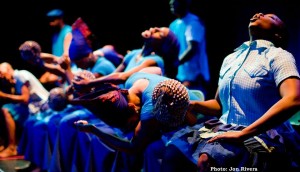 My friend read the letters DWB on my computer screen, assumed they were the acronym for “driving while black” and wondered what racial profiling had to do with the corresponding photos of black women caught in mid-motion, arms extended, faces to the sky. I told her that DWB is Paloma McGregor’s latest initiative and creative brain (and body) child: Dancing While Black. Paloma, formerly a dancer with Urban Bush Women, is a choreographer, dancer, writer, educator, and activist whose seamless integration of all of these roles translates into work that defies easy categorization. I might begin a description of Dancing While Black by stating that it is artist-led, but then would have to interrupt to explain that artist in this context reflects no traditionally bound category; it is much more relevant and generous. It includes all of us and all of the ways that we might imagine movement to transform us individually and fuel our collective, and it is this transformation and collective movement that grounds much of what it can and does mean to dance while Black. Paloma uses Black as prompt and platform. Artist and audience (often overlapping or interchangeable in any given evening, workshop, or performance) are compelled to move through Blackness as experience, requiring an investment in all of the possible ways intimate understandings may be felt and transferred, repressed and silenced, exploited and dismissed, and held and celebrated publicly. Blackness, then, like dance, moves through but is not contained within bodies.
My friend read the letters DWB on my computer screen, assumed they were the acronym for “driving while black” and wondered what racial profiling had to do with the corresponding photos of black women caught in mid-motion, arms extended, faces to the sky. I told her that DWB is Paloma McGregor’s latest initiative and creative brain (and body) child: Dancing While Black. Paloma, formerly a dancer with Urban Bush Women, is a choreographer, dancer, writer, educator, and activist whose seamless integration of all of these roles translates into work that defies easy categorization. I might begin a description of Dancing While Black by stating that it is artist-led, but then would have to interrupt to explain that artist in this context reflects no traditionally bound category; it is much more relevant and generous. It includes all of us and all of the ways that we might imagine movement to transform us individually and fuel our collective, and it is this transformation and collective movement that grounds much of what it can and does mean to dance while Black. Paloma uses Black as prompt and platform. Artist and audience (often overlapping or interchangeable in any given evening, workshop, or performance) are compelled to move through Blackness as experience, requiring an investment in all of the possible ways intimate understandings may be felt and transferred, repressed and silenced, exploited and dismissed, and held and celebrated publicly. Blackness, then, like dance, moves through but is not contained within bodies.
Dancing While Black supports the current work of Black dance artists while also offering space for their (our) diverse creative work to transition through all stages of development and revision. This includes platforms to showcase completed pieces and works in progress, dialogues from which new textual, theatrical, and movement material may emerge, and documentation of the various steps and missteps along the circuitous path of art making. Presently, DWB is highlighting the courageous multi-media and multi-dimensional work of three dance collectives: Rashida Bumbray/Dance Diaspora Collective, Ebony Noelle Golden/Betty’s Daughter Arts Collaborative, and Adia Whitaker/Ase Dance Theatre Collective. The fullness of the African Diaspora is reflected in their collective work as they travel with and through Haiti, New Orleans, the Geechie Sea Islands, Tennessee, Harlem, and Brooklyn to remind us of the deep connections that thread all of these geographic locations to each other as well as to the public and private practices of space making we cultivate in our living rooms, studios and journals; on streets, buses, and trains; and through memory and imagination. Dancing While Black may expose us and make us vulnerable in ways analogous to driving while Black, but it demands more space than the policing practices of the state can possibly control or even begin to define. Dancing while Black – and here I mean Paloma’s initiative and our every day movement through the world as Black people – magnifies the joy in play and the beautiful, sometimes dangerous, and potentially generative possibility of getting it all wrong while it feels so right – or getting it right while it feels so wrong. But, these types of assessments ultimately depend on whose opinion we beg and the fruitful unreliability of our perspective as artist or witness in each encounter. The moment shifts and so do we as we learn from the connections we make through movement.
You can experience and experiment for yourself this Friday 5/30 and Saturday 5/31 at the Bronx Academy of Art and Dance (BAAD) where Dancing While Black, curated by Paloma McGregor and produced by Angela’s Pulse, will present Collectivism in Black Aesthetics. Rashida Bumbray, Ebony Noelle Golden, and Adia Whitaker’s collectives will perform on both Friday and Saturday evening. Friday’s performance will be proceeded by a panel discussion featuring Urban Bush Women’s Founder Jawole Zollar, Dance Scholar Dr. Brenda Dixon Gottschild, Culutral Anthropologist Aimee Cox and Cultural Critic Greg Tate, moderated by Artist/Organizer Shani Jamila. On Saturday you can move with three master teachers, Nia Love, Adenike Sharpley, and Jawole Zollar before you are moved by the evening performances. Only $10 for ALL three classes!

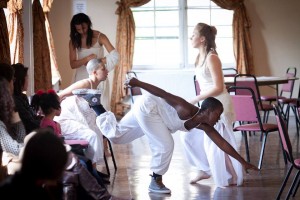
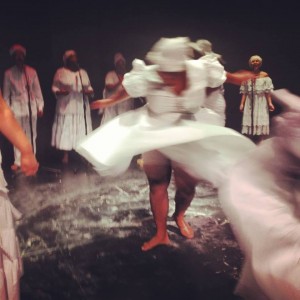
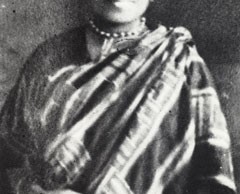

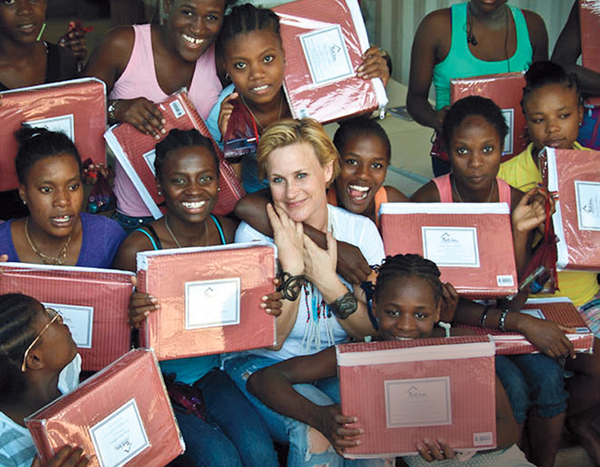
0 comments